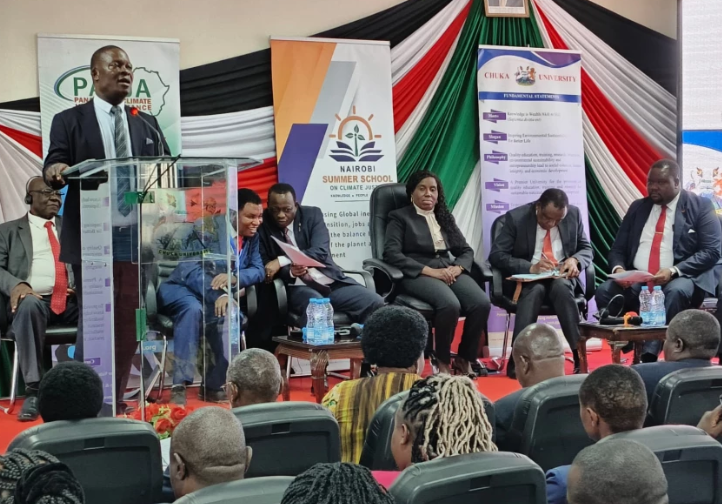Kenya’s grassroots green financing program is currently in a critical phase where local communities are demonstrating their strategies to implement projects that mitigate the effects of climate change in their regions.
The Treasury’s subsidiary office overseeing the Financing Locally Led Climate Action (FLLoCA) program acknowledges encountering a significant knowledge gap regarding climate change across all 47 counties.
Climate action experts emphasize the necessity of regularly guiding and supporting county implementation units and local communities involved in frontline climate action projects. This guidance is crucial to ensure effective project implementation and positive outcomes.
Kenya is currently hosting the fourth International Symposium on Climate Justice, with a focus on addressing the knowledge gap to enhance the involvement of climate change professionals at the grassroots level. As the symposium enters its second week, efforts are underway to bolster climate action initiatives in local villages.
A notable initiative in this regard is the annual ‘green’ school known as the Nairobi Summer School, held at Chuka University in Tharaka-Nithi County. This school operates in collaboration with climate change organizations and local universities, aiming to educate and empower participants on climate change issues.
Under the Financing Locally-Led Climate Action (FLLoCA) program, 98 students from all 47 counties have been selected to undergo training. This initiative seeks to broaden local understanding and engagement in climate change action, particularly among the younger generation.
“We decided to introduce the academic empowerment to youth strategy to locals because the major challenge to FLLoCA in the counties right now is the climate change technical knowhow; most staff in those climate change units are handpicked not on academic qualification basis but just for the sake of keeping the units running,” said Peter Odhengo, the FLLoCA program coordinator.
The Nairobi Summer School, a highly competitive climate change scholarship program, received over 4,000 applications globally, but only 280 scholars were selected. The selection process emphasized academic qualifications, requiring applicants to hold at least a bachelor’s degree and preferably a master’s degree, with a strict age limit of 35 years and below.
Mr. Odhengo highlighted that out of these scholars, 98 Kenyan youth are participating in a two-week program. Following this, they will undergo additional specialized climate change training in the country.
Subsequently, they will embark on a six-month attachment in their respective counties’ Climate Change Units, with potential employment recommendations aimed at enhancing local climate action initiatives at the county level.
“Having people with basic and professional knowledge in the County Climate Action offices will tighten loose ends and provide readily available support to the locals who are the Climate Action projects implementers, currently some counties are finding it rough for lack of climate change technical knowledge,” he said.
“But the good thing is that we have FLLoCA representatives on the ground walking the journey with the county governments and the locals, the Climate change-trained youth will be the counties’ technical experts.”
The annual climate change symposium has 82 African countries’ representation as well as 52 other countries’ representation globally.
However, the group of 98 trainees by FLLoCA has been inaugural since the rollout of the grassroots Action green finance in 2024.



